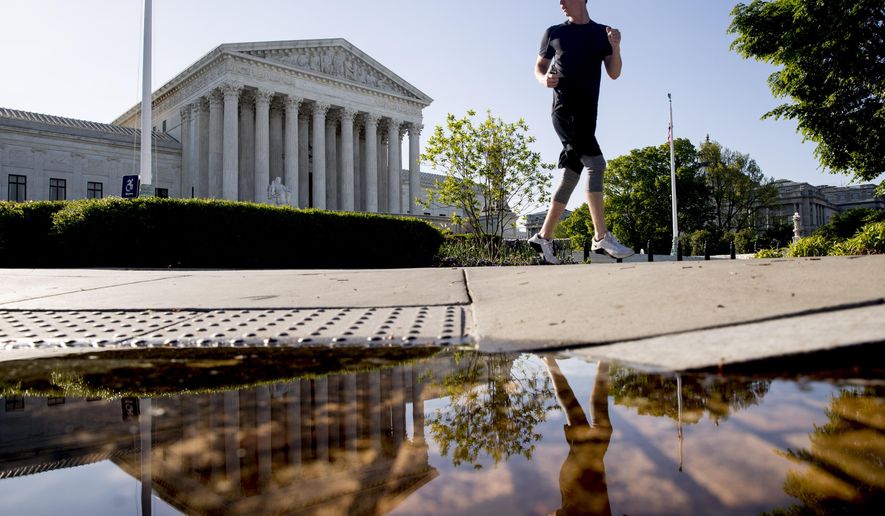The Supreme Court announced Monday it will consider expanding a recent ruling and overturn convictions for more felons locked up with nonunanimous jury verdicts in Louisiana.
The court overturned years of precedent in April when the majority ruled for Evangelisto Ramos, saying he was railroaded by Louisiana’s criminal justice system, having been sent to prison for life without the possibility of parole by a divided jury.
Ramos was found guilty of second-degree murder by a 10-2 vote.
A unanimous verdict is required to convict in 48 states, so a mistrial would have been declared in every other state except Oregon.
Since Ramos’ original jury verdict in 2016, Louisiana has amended its constitution, via a voter referendum in 2018, to require a unanimous verdict.
Oregon, though, still allows the nonunanimous convictions, according to the Promise of Justice Initiative, a criminal justice-focused nonprofit group in New Orleans that has been challenging nonunanimous verdicts since 2004 and represented Ramos.
Justice Neil M. Gorsuch authored the Ramos’ opinion for a divided court, saying the “text and structure of the Constitution clearly suggest that the term ’trial by an impartial jury’ carried with it some meaning about the content and requirements of a jury trial. One of these requirements was unanimity.”
After the judgment, Ramos’ case was remanded back to the lower court for further proceedings, but on Monday the justices announced they’ll also consider Thedrick Edwards’ case, who has made similar arguments as Ramos.
Edwards sued Louisiana last year over its nonunanimous jury verdict rule after he was sentenced to life behind bars for rape and aggravated robbery.
But in this challenge, the justices will now decide if the decision they issued for Ramos last month — holding the non-unanimous jury verdict violated the constitution — should apply to other felons.
The case will be heard during the court’s 2020 term, which begins in October.
The high court also heard arguments for the first time via teleconference Monday, which were streamed live for the public and reporters to hear outside the courtroom for the first time in the court’s 231 year history.
The move was made due to the coronavirus pandemic, and the case dealt with patent and trademark law and the travel website Booking.com. A decision is expected to be issued this summer.
The justices will hear another three cases this week via teleconference, and six more next week.
• Alex Swoyer can be reached at aswoyer@washingtontimes.com.




Please read our comment policy before commenting.